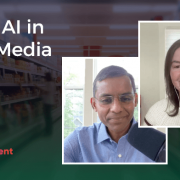Data engineering jobs are often highly competitive as they are one of the most sought-after careers globally. The range of technical skill sets needed for the job is high, often leaving candidates confused while preparing for a job interview. While some aspirants for this role focus on learning newer tools and platforms, some develop a sound business foundation. So how does one prepare for these interviews for data engineering jobs? This article focuses on this topic and offers essential tips to help you better prepare for the interview:
Before the interview
#1: Take time to Understand the Job Profile
To begin with, while applying for the job, understand the job description to figure out what the job entails. Then, think through which courses, projects, and scenarios are relevant to the responsibilities mentioned in the job description. It is natural that you may forget something from your past, especially things that happened a while back. But if you have mentioned it in your resume, be prepared to answer questions about it.
#2: Learn About the Company You Have Applied For
Understand more about the company you are interviewing for – their website is a great place to start. Put yourself in the interviewer’s chair and think about what questions they might ask you. Job search websites like Glassdoor are valuable resources for finding interview questions for specific companies. In addition, it would help to talk to friends and colleagues who are data experts to understand what their job profile looks like and what are some of the common challenges they face at work.
#3: Revise Your Core Skills
As a data engineer, you may be required to know one or more programming languages like Java, Python, SQL, Unix/Linux, and R. Understand the job description and revise the expected technical skills needed for the profile. For instance, if the job focuses on a backend-centric system, you may want to prepare on Scala or Python. Also, review and highlight the technical concepts like distributed systems & computing engines, MPP (massively parallel processing) databases, and event-driven systems that may be required for the job.
Review data pipeline systems and new tools and features across big data platforms, especially in the Hadoop ecosystem. Apache Spark is popular amongst the data engineering community and the next big thing to learn for any data engineer.
#4: Know about the nice-to-have skills:
As a data engineer, it is an added advantage to know the basics of one or more of the following :
- Modern data architectures
- Real-time data processing using tools like Apache Kafka
- Workflow tools such as Apache Airflow
- No-SQL databases like Cassandra, HBase, MongoDB
- Cloud platforms like Microsoft Azure or AWS, or GCP
- Modern DBaaS (Database-as-a-service) platforms like Databricks and Snowflake
- Code repository and version control using tools like Git, Bitbucket
- Data pipeline automation using Machine learning and Artificial Intelligence techniques
While this is an elaborate list, focus on the ones mentioned in your job description.
#5: Prepare for Scenario-based Questions
To make the discussion effective, identify an end-to-end data flow scenario from your experience and prepare to speak about it. Make sure to state the goal clearly and how you handled data lineage, duplication, loading data, scaling, testing, and end-user access patterns. Talk about how the pipeline made data accessible to multiple data-consuming applications through well-maintained and reliable endpoints. You should be able to talk fluently about different phases of a data pipeline, such as data ingestion, data processing, and data visualization. You should also explain how different frameworks work together in one data pipeline. At the same time, highlight points such as data quality, security, and how you improved the availability, scalability, and security of the data pipelines for on-prem or cloud-based applications. This will give a holistic picture to the panelists.
#6: Communication is Key
Learn how to explain your past projects in technical and business terms. Aside from being able to code and assemble data, you must also be able to describe your approach and methodology to the interviewers. Also, practice speaking about your choices and why you chose a particular approach or tool over another.
Interviewers will always look for how well you represent any business scenario and how confidently you can speak about the projects you have worked on. A good way to practice is to do a mock-up session with a friend unfamiliar with big data.
During the interview
#7: Provide Contextual Answers – This is the best way to showcase your analytical and problem-solving skills. Having the ability to quickly produce a viable solution to any problem shows the recruiter that you can handle tough situations. Backing this with experience will help you stand out from the competition. For example, an interviewer might ask:
When did you last face a problem managing unstructured data, and how did you resolve it?
They want to know your way of dealing with problems and how you use your strengths to solve data engineering issues. First, give them a brief background about the problem and how it came to be, then briefly talk about what processes and technologies you used to disentangle it—and why you chose them.
#8: Demonstrate your Problem-Solving and Technical Skills
If you are asked a scenario-based question, first understand the question well before you answer it. Scenario-based questions can be tricky, and the panelists may want to evaluate your analytical abilities by posing questions that do not provide complete clarity. In such a scenario, asking the panelists additional questions if needed is the best strategy to be clear on the question before you choose to answer. Sometimes there is no right or wrong answer to such questions. The interviewer is most likely testing your approach rather than the solution itself.
While answering a scenario-based question, try to demonstrate your technical skills wherever applicable.
#9: Be Ready to Code
Some interviewers may ask you to quickly write a function to modify the input data and generate the desired output data. You will be expected to employ the most effective data structures and algorithms and handle all potential data concerns nimbly and efficiently. Even if you cannot write the code by maintaining the proper syntax, pseudo-code also works in most cases. Interviewers would look at the logic you have used to build the code.
In the real world, data engineers do not just utilize the Company’s built-in libraries but often use open-source libraries too. You may be asked to design solutions utilizing well-known open-source libraries like Pandas and Apache Spark in your coding interview. You will probably be given the option of looking up resources as needed. If the position demands expertise in specific technologies, be prepared to use them during your coding interview.
#10 Finally Relax!
It is natural to get caught up in the questions and feel intimidated by the person across the table. But do not lose sight of the fact that your interviewer wants you to do well. They want to hire someone exceptional for the position—and they hope you are that someone. Go into the interview with the right mindset and prepare a few questions to ask the interviewer when you get a chance.
Interested in working on complex data engineering projects? Apply to Infocepts today
Recent Blogs

Bots to Brains: How Agentic AI is Changing the Game
July 8, 2025

The Future of Supply Chains Is AI-Driven—Is Your Business Ready to Embrace the Change?
July 2, 2025

What Retail Media Can Learn from Instacart’s AI Strategy
June 24, 2025

Beyond Chatbots: How Agentic AI Is Automating High-Stakes Business Decisions
June 11, 2025


